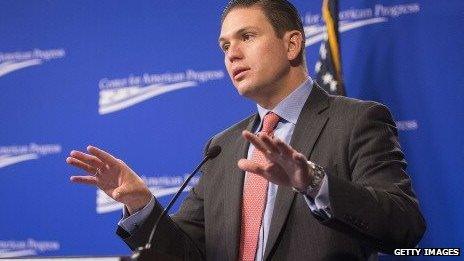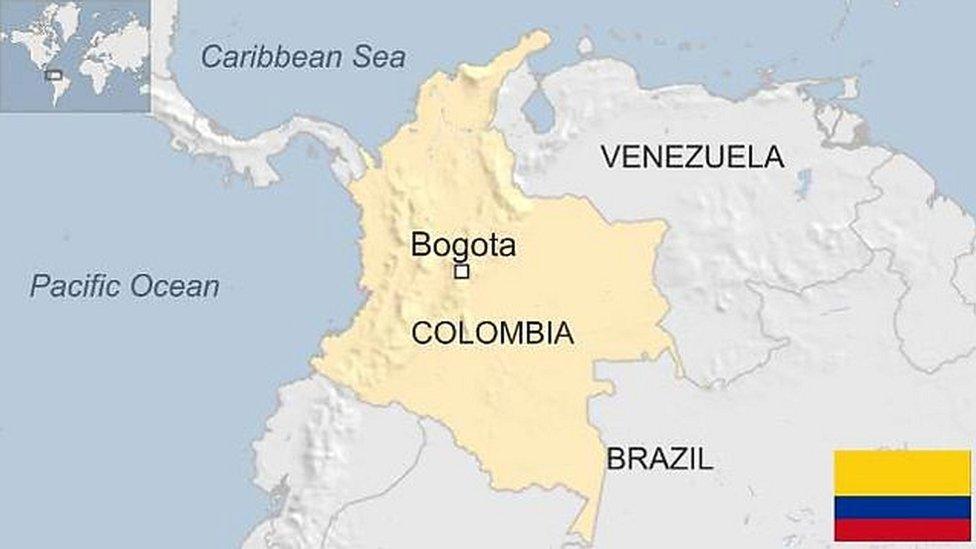Colombian defence ministry spills secrets in email
- Published
- comments

The media learned more about Defence Minister Juan Carlos Pinzon's Washington visit than they expected
Emailing errors are embarrassing, but they happen every day. Emailing errors that reveal secret details of high-level diplomatic missions, however, can cause a bit of a stir.
Such was the case when Colombian Defence Minister Juan Carlos Pinzon travelled to Washington DC on Wednesday for three days of meetings with US officials in the Obama administration and Congress.
Prior to the visit, the defence ministry's prensa@mindefensa.gov.co email account accidentally sent a 55-page document in English to dozens of journalists in Washington with details of Mr Pinzon's visit, from the important (strategy and points of emphasis) to the mundane (the minister's frequent flier number, where he will be staying and what he will be eating).
The Colombian Spanish-language magazine Semana says the incident has turned the diplomatic mission into a drama.
"The objective of the visit was to project Colombia's transformation as well as the modernisation of the Armed Forces and the National Police, but it has become an awkward episode for the minister," it reports, external (in Spanish).
When Colombian officials learned of the mistake, they urged journalists to refrain from publishing information from the document for fear of jeopardising national security.
Colombia's media has complied... sort of. The privately owned Colombian RCN TV quoted the objectives for the minister's visit to the White House. El Espectador's Daniel Pacheco gave an extensive rundown of what the document contained, including plans to spend 40 minutes talking about Colombian national security issues with CIA and anti-narcotics officials.
"With the frankness that a confidential document allows, the ministry of defence reveals that, in addition to the good neighbour talk maintained by Colombian diplomacy, there is a realistic recognition that Nicaragua, Venezuela, Russia and Iran represent potential 'challenges' for Colombian national security," he writes, external.
The document also reveals that the minister plans to ask for continued support for aerial fumigation to eradicate the country's cocaine crops and backing for its "espada de honor" counterinsurgency operations.
Colombian Ambassador to the US Luis Carlos Villegas said the release of the document, while a "grave error", "contains no surprises, as there aren't any in relations between Colombia and the US".
On Thursday morning, Mr Pinzon addressed the leak in a press conference covered by BBC Mundo.
"My feeling is that this was simply a mistake, one that should not have happened," he said. "I think a reprimand has already been given, and if there are any appropriate formal proceedings, they will surely be done."
"This was not a leak, but a file sent by error," he continued. "If I knew with certainty that this had been something with bad intentions, calculated, analysed, I would be telling it that way. But I don't think it is the case."
One of the stated goals for the Colombian minister's visit was to demonstrate how US-Colombia relations had moved beyond purely defence and narcotics issues.
Now, however, the national security revelations in the document are dominating the news. It's an embarrassing stumble for a Colombian government that wanted to put its best foot forward in Washington.
- Published14 February 2023
